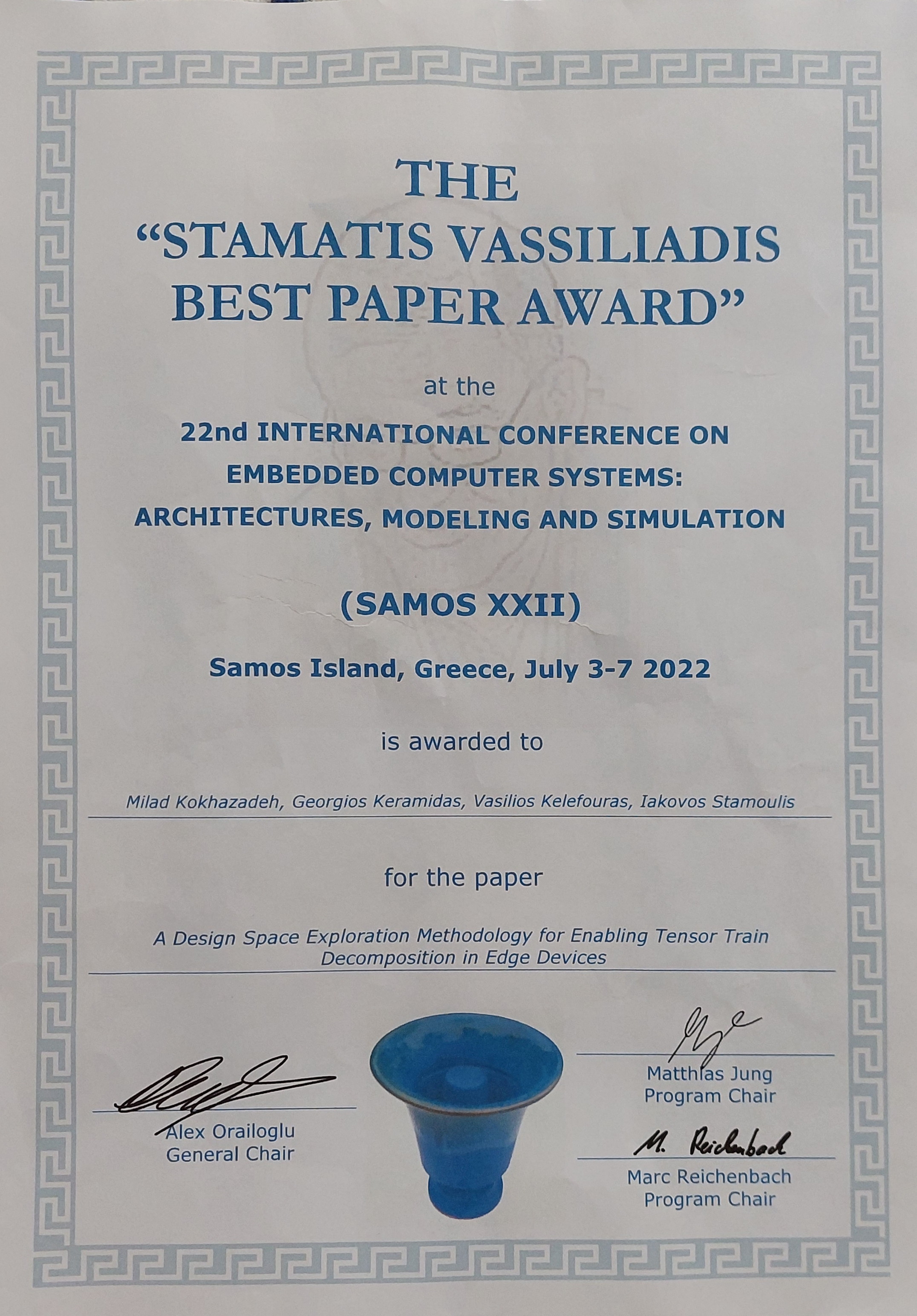Items list
Description
Think Silicon, An Applied Materials Company, joined forces with the Aristotle University of Thessaloniki and the University of Plymouth and won the “Stamatis Vassiliadis” Best Paper Award at SAMOS XXII: 22nd International Conference on Embedded Computer Systems: Architectures, Modeling, and Simulation, which was held between July 3 and 7, in Samos Island, Greece.
In the award-winning paper titled “A Design Space Exploration Methodology for Enabling Tensor Train Decomposition in Edge Devices” the authors propose a practical methodology that enables a vast compression of the dense layers of Deep Neural Network (DNN) models achieving a memory reduction up to 97.7% with minimal or even no impact in accuracy (-1.5% to +13%).
The developed methodology is based on the Low-Rank Factorization (LRF) technique and it formulates the LRF as a (FLOPs vs. memory vs. prediction accuracy) Design Space Exploration (DSE) problem. Then, the DSE space is drastically pruned by removing inefficient solutions. Experimental results prove that it is possible to output a limited set of solutions with better accuracy, memory (40%-99% reduction), and FLOPs (9-99% reduction) compared to the original (non-factorized) model.
The proposed methodology is currently being integrated into the AI-SDK tool of the company and it is expected to offer a significant competitive advantage to the NEOXTM AI accelerator when processing DNN/CNN-based Edge and Wearable applications.

